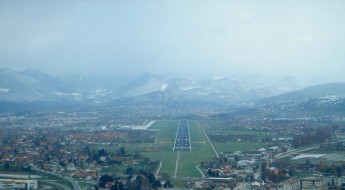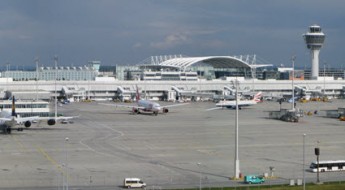
BERLIN, GERMANY. The global airport industry is undergoing significant change. Due to a number of factors such as growing air traffic demand, regulatory changes, changing passenger expectations and cost pressure, airports are starting to adapt. Airports are changing the way they operate, make decisions and the technologies they invest in. In this interview series, Safegate Group interviews leading experts about what they see are key challenges facing the airport industry and how they plan to meet them. In the first interview of this series, Safegate’s Claudio Pellegata talks to Luz Teichler, an experienced project manager at AAC Aviation & Airport Consult GmbH based in Germany. Mr. Teichler is an expert in airside and landside planning, consultancy, inspection, supervision and related technology.
Aviation has seen a lot of changes in the last couple decades. In your view, how have airports changed?
Airports have seen a number of changes. Broadly speaking, in the past, airports were seen as places where your journey began and ended. But, with air traffic growth, the airport developed into an economic hub and place for networking and exchange. This process was reinforced by the disappearance of the classic state airline and the emergence of so-called low-cost airlines. Due to larger numbers of air travellers, airports have turned to IT innovations that offer opportunities to improve and optimize flight operations and passenger handling. Airports have developed closer relationships with the wider community as well. The results of this have been a decrease in operating hours and restrictions in night flights which have had an impact on economic development.
Of course, there have also been significant changes in requirements for aviation security. This has become a central and costly issue for airports internationally.
Rising air traffic is a hot topic in aviation today due to factors like global demographics and economic development. How will airports change as they adapt to increased demand for air transport services?
Mobility has become a lifestyle and the increasing demand for air transport is a result of that. People live and work increasingly in metropolitan areas and cities. Airports will become even more integrated into city infrastructure in terms of social, cultural and commercial activities. Airports will have to prioritize their space requirements meaning we will probably see less malls, concert halls and amusement parks in airports. Air traffic increases and larger aircraft will take priority for airport infrastructure allocation. Aircraft development will also change flight procedures within a 15 year period. I expect technical and operational developments to adapt as well.
To do with airport security, I expect the further development in IT systems and sensor technology resulting in major benefits for airports. However, these are costly technologies and getting passengers to accept these security procedures may be a challenge. Airports need to find a balance between need and readiness and between give and take.
Airports will be adapting to a lot of complex challenges in the future, probably more complex then today. What do you think airports need to do in order to prepare for this?
Airports should be thinking about the future now, but we have to keep in mind they all have different needs and factors to consider. Not every airport will develop rapidly or need a detailed development plan. However, where changes are expected, airports should start investigations to establish a social consensus about the direction they take at an early stage. Furthermore, the discussion about future technologies and regulatory frameworks should be conducted with all stakeholders in Europe and not limited just to national or regional levels. A better solution for future requirements can be found only through international cooperation and collaboration. This applies to both a more active and effective European Union. We should keep in mind that airports and other stakeholders stand to benefit from greater international cooperation. Despite all this, however, the performance, quality and the work culture of an airport’s management essentially determines its ability to respond to changing conditions.
About:
* AAC Aviation & Airport Consult GmbH, founded 2000, is an international engineering company specialized in the development of airports and in the planning of navigation aids and air traffic management systems for airports and air traffic control centres.
* Luz Teichler has been a project manager for over 15 years at AAC Aviation & Airport Consult GmbH. During this time he was involved in many different projects all over the world, including in Europe, Asia, Africa, the Middle East and the Caribbean. His expertise includes planning, consultancy, inspection and supervision to do with both airport airside and landside projects. He focuses on technical equipment, electrical supply systems, navigation systems and airport technology systems.















Leave a Comment